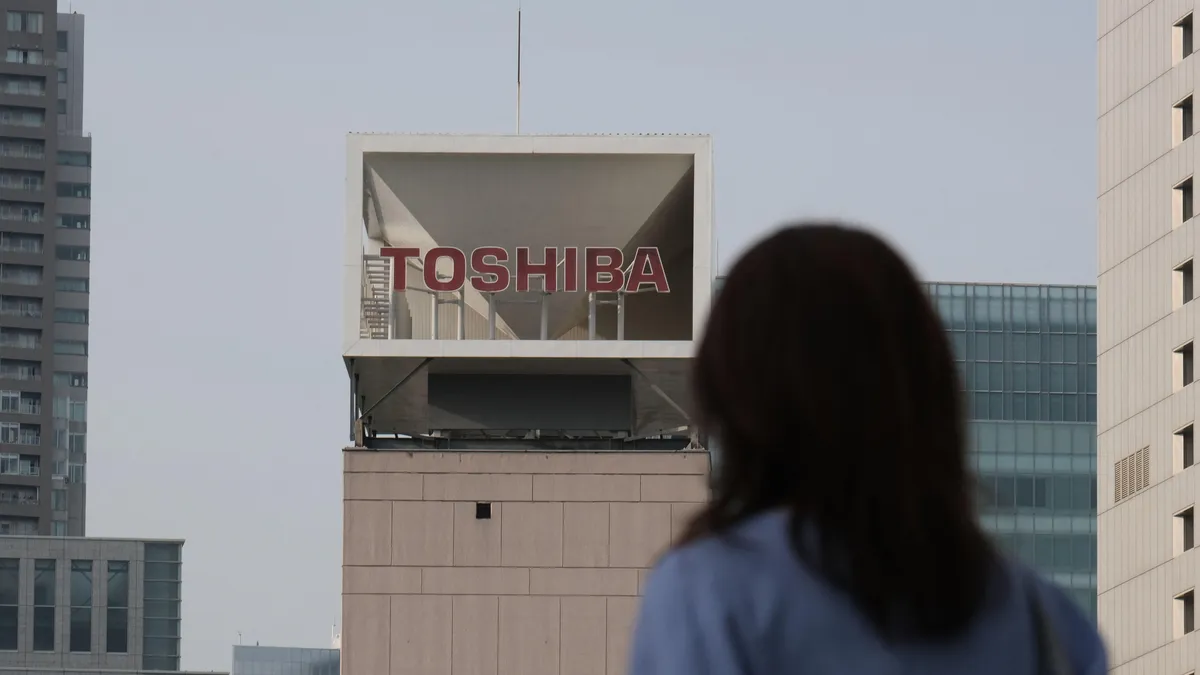4809
0
Toshiba wants to split into three listed companies
Toshiba wants to split into three listed companies. One of the newly created companies will focus primarily on semiconductor chips.

Yazar: Tom Roberts
Yayınlanma: 13 Kasım 2021 07:32
Güncellenme: 20 Şubat 2026 21:49
Toshiba wants to split into three listed companies
The Japanese technology giant Toshiba wants to split into three listed companies. The long-established company has now announced this. Under strong pressure from foreign shareholders, the long-stumbling group of companies hopes to use this unprecedented step for Japan to strengthen profitability in key areas in the future. The corporate giant, founded in 1875, is one of the best-known names in the Japanese economy. However, the disastrous foray into the US nuclear power business and a balance sheet scandal had brought Toshiba to the brink of the abyss in the middle of the last decade. By 2023, the energy, infrastructure and digital business on the one hand and the semiconductor and hard drive division on the other are to be split off and listed on the stock exchange separately, as the group announced. That leaves the core business with the printer division (Toshiba Tec) and the 41 percent stake in the memory chip manufacturer Kioxia. Toshiba also wants to monetize the latter. Just a few days ago, the US industrial group General Electric (GE) announced that it would also split into three companies. GE and Toshiba have long been partners and cooperate in areas such as offshore wind turbines. At General Electric, companies for aviation, medicine and another company will be created in the future, which will cover the business of renewable energies, energy generation and digitization. With the split, which is now also planned at Toshiba, the Japanese corporate conglomerate is responding to growing demands from activist shareholders for transparency and efficiency. In June, an independent investigative body found that Toshiba managers were collaborating with the Department of Economy, Trade and Industry (METI) to prevent foreign shareholders from influencing the board of directors by sending directors. Two top managers then had to vacate their posts. CEO Satoshi Tsunakawa had justified the relationship with METI with the fact that Toshiba's business is important for the national security of Japan. Toshiba went "too far", however. Foreign shareholders hold a large part of the shares in Toshiba. In the report that has now been submitted, the group admitted that top managers such as the former CEO Nobuaki Kurumatani have violated business ethics by kinking with the powerful industry ministry, but have not violated any laws. Toshiba has been accused of being overly dependent on the METI and of having excessive reservations about overseas mutual funds. Kurumatani abruptly resigned in April in connection with internal disputes over a multi-billion dollar takeover bid by British financial investor CVC Capital Partners.İLGİLİ HABERLER





European stocks soared and focus shifted to German retail sales after Powell's speech!

Forex Signal For TRY/USD: Inflation Slowdown in November.

Forex Signal For GBP/USD: Bullish Trend Still Not Breaking While Recovery Continues.

Forex Signal For EUR/USD: Starry US Data Points to Higher Fed Increases.

Forex Signal For BTC/USD: Downside Continues as Bitcoin Recovery Moves Less.
En Popüler Haberler
Yorum Yap
Yorumlar
Henüz yorum yapan yok! İlk yorumu siz yapın...